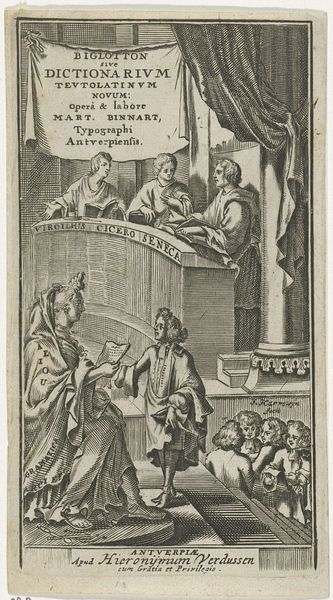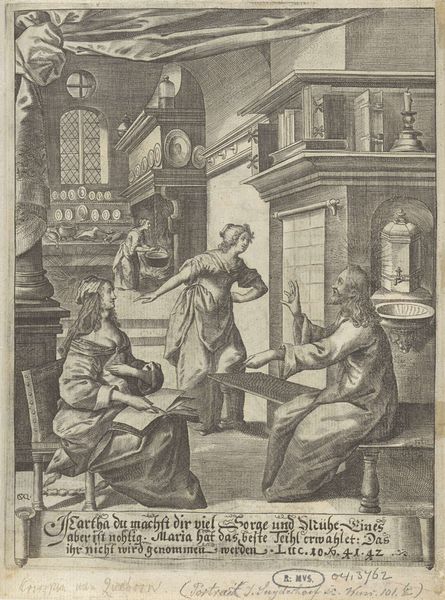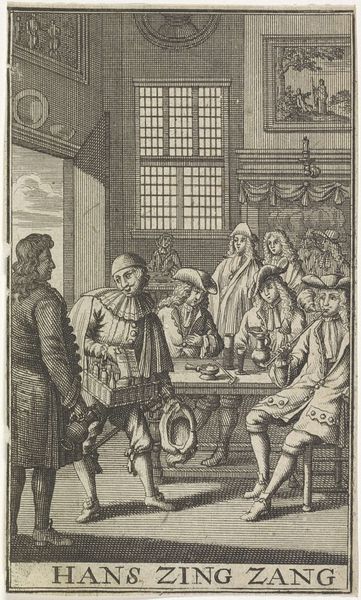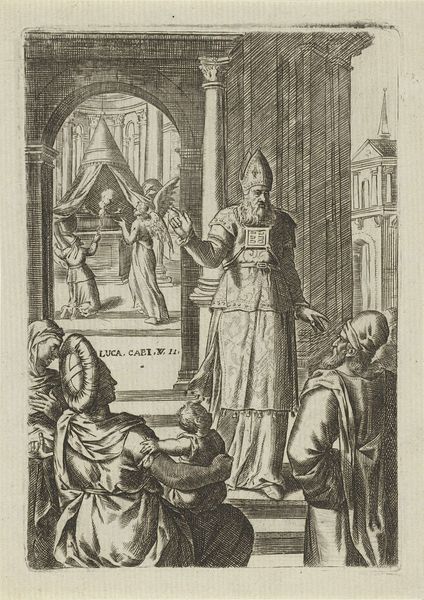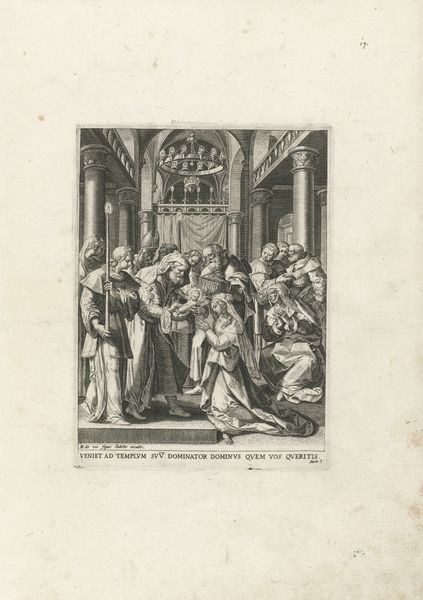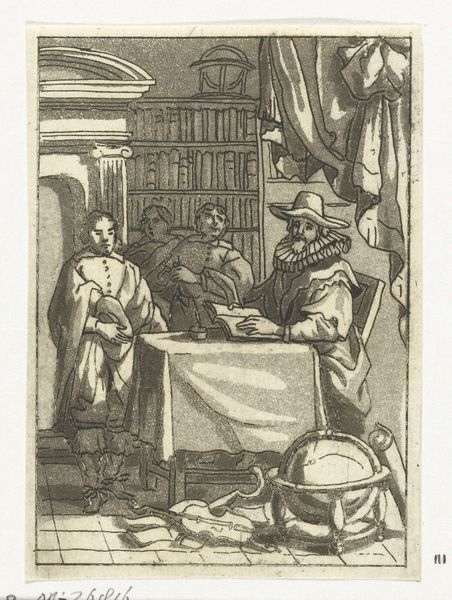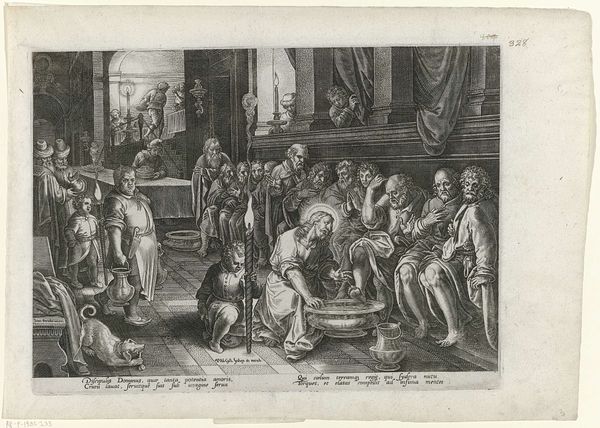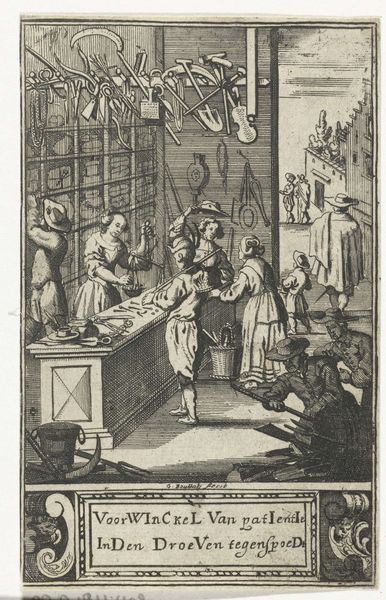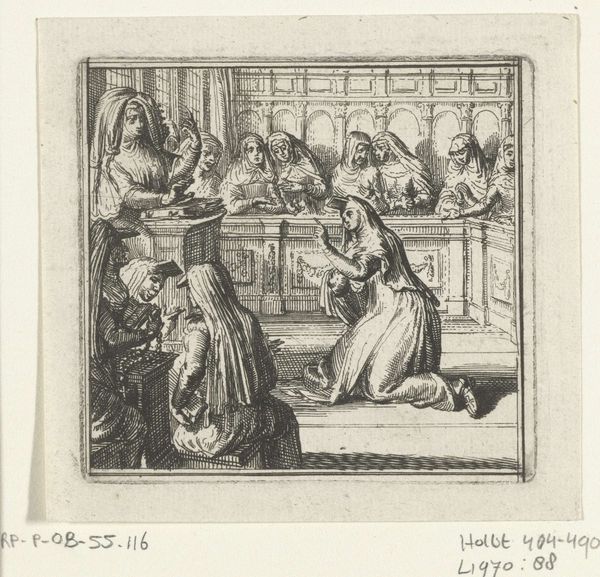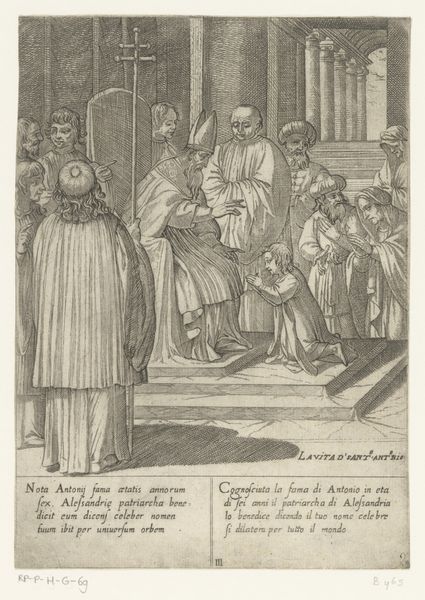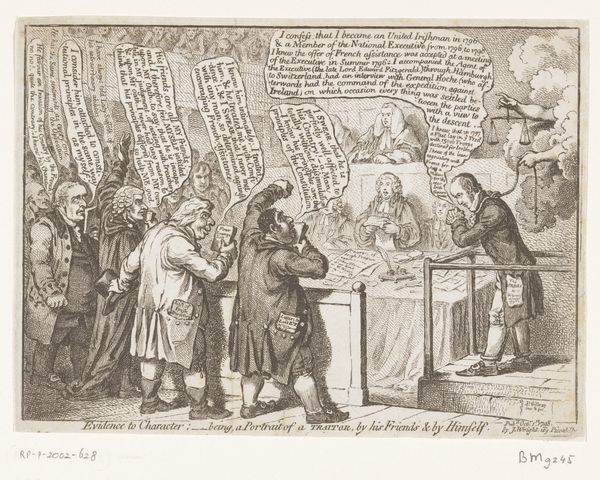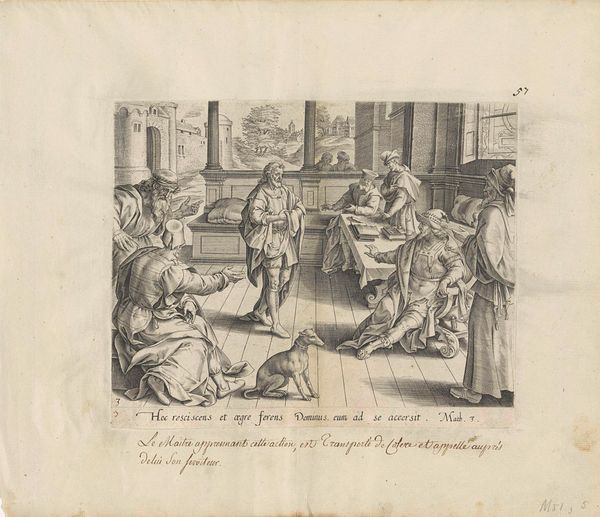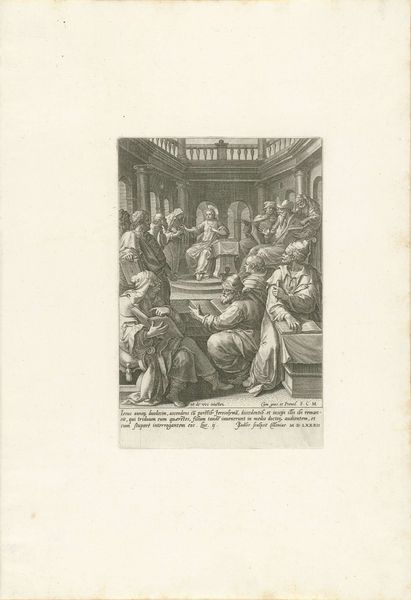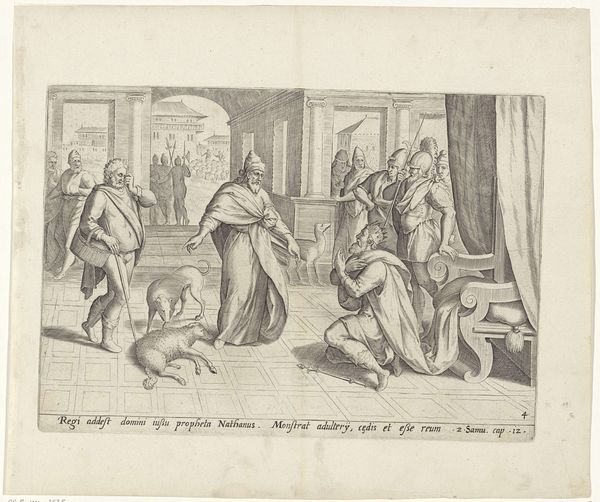
print, engraving
#
portrait
#
baroque
# print
#
genre-painting
#
history-painting
#
engraving
Dimensions: height 112 mm, width 152 mm
Copyright: Rijks Museum: Open Domain
This print, made by Crispijn van de Passe the Younger, probably in the early 17th century, is an intricate etching, a process that involves coating a metal plate with wax, drawing a design, and then using acid to bite into the exposed lines, before finally inking and printing the plate. Looking closely, the fine lines create a detailed depiction of a brothel scene. The act of etching itself, requiring meticulous skill and time, mirrors the careful construction of social facades depicted in the scene. Each line, etched with purpose, contributes to the overall narrative of the artwork, reflecting the social and economic transactions within. This print serves as a "Mirror" reflecting the behaviors of courtiers of the time. The artist's labor is not just in the physical act of creation, but also in the social commentary embedded within the work. The materials and processes of printmaking elevate the scene, turning an image of everyday life into a significant cultural artifact.
Comments
No comments
Be the first to comment and join the conversation on the ultimate creative platform.
